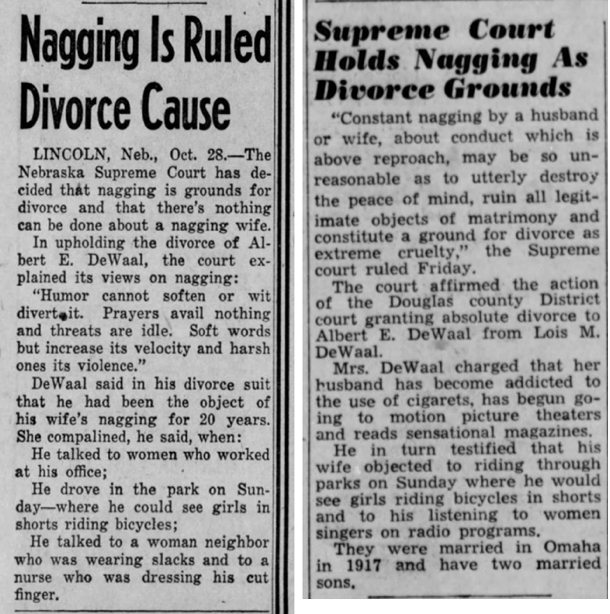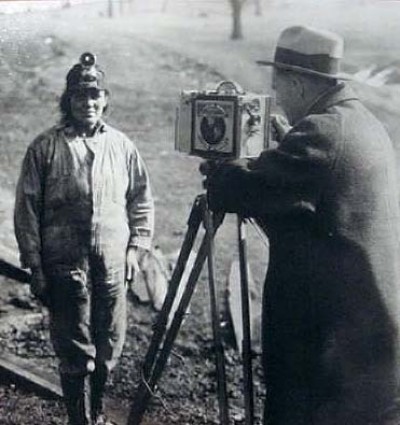Law
Is cannibalism illegal?
Turns out there are no laws in the U.S. specifically outlawing cannibalism, except in Idaho, which has this statute on the books:CRIMES AND PUNISHMENTS
CHAPTER 50
MAYHEM
18-5003. CANNIBALISM DEFINED -- PUNISHMENT. (1) Any person who wilfully ingests the flesh or blood of a human being is guilty of cannibalism.
(2) It shall be an affirmative defense to a violation of the provisions of this section that the action was taken under extreme life-threatening conditions as the only apparent means of survival.
(3) Cannibalism is punishable by imprisonment in the state prison not exceeding fourteen (14) years.
What's going on in Idaho that inspired this law? A 2011 article in the Journal of Law and Social Deviance explains:
But what about placenta-eating (a practice that's been discussed a number of times here on WU)? Wouldn't the Idaho statute make this practice illegal? Yes, technically it would. But the same article argues that if Idaho ever tried to send anyone to prison for placenta eating (or any other non-harmful, consensual form of cannibalism — ingesting blood, etc.), their statute would probably be ruled unconstitutional as it violates a fundamental "right to privacy."
Posted By: Alex - Sat May 02, 2015 -
Comments (9)
Category: Food, Law
Nagging as divorce cause
The 1947 case of DeWaal vs. DeWaal established nagging as legitimate grounds for divorce (in Nebraska). I assume this was before the availability of no-fault divorce. (A quick google search reveals that Nebraska only adopted a no-fault divorce law in 1972.)Note that Mrs. DeWaal argued that her husband was at fault (and not herself) because he went to motion picture theaters and read "sensational magazines."

(left) The Harrisburg Evening News - Oct 28, 1947; (right) The Lincoln Star - Oct 24, 1947
Posted By: Alex - Sun Mar 22, 2015 -
Comments (4)
Category: Law, Lawsuits, Husbands, Wives, 1940s
Ouija Board Inheritance
A follow-up to my Ouija board post of last week. This may be the only case of a Ouija board involved in an inheritance dispute.When Mrs. Helen Dow Peck died in 1955, she left almost her entire estate to "John Gale Forbes," whom she met via Ouija board. Which is to say that John Gale Forbes was not a corporeal entity. Mrs. Peck's surviving (flesh-and-blood) relatives sued, arguing, in essence, that Mrs. Peck was clearly nuts. The court eventually agreed and voided her will. This has established the legal precedent that ghosts can't inherit money. Read more about the case here.

Corpus Christi Caller-Times - Mar 13, 1956
Posted By: Alex - Tue Feb 24, 2015 -
Comments (11)
Category: Law, 1950s
Breaks Will
A great moment in the history of 'oops': Back in 1911, a lawyer accidentally tripped and smashed the phonograph record on which Hodson Burton had recorded his final will, revealing where he had hidden his fortune. (If this lawyer was true to form, I'd guess he still made sure to submit a bill for his services.)I wonder if Hodson Burton's fortune has ever been found.
Posted By: Alex - Sun Feb 01, 2015 -
Comments (6)
Category: Law, 1910s
A Singular Will
Source: Notes and Queries, Nov 6, 1858.
Posted By: Alex - Sat Sep 13, 2014 -
Comments (4)
Category: Death, Law, Nineteenth Century
Okay-Doke!
This was a great moment in American law. From the New York Times - Feb 7, 1935:
Posted By: Alex - Wed Jun 11, 2014 -
Comments (6)
Category: Law, Judges, 1930s
Having a child in a stagecoach
In 1709, the German legal scholar Dr. Heinrich Klüver published the following important work (which, amazingly, is available in its entirety on Google books): Kurtzes Bedencken über die juristische Frage: Ob eine schwangere Frau wenn sie wärender Reise auf dem Wagen eines Kindes genesen, für selbiges Fuhr-Lohn zu geben gehalten sey?Translation: Brief consideration of the judicial question: whether a pregnant woman, bearing a child while traveling in a stagecoach, is obliged to pay a fare for it or not.

Substitute Greyhound bus for stagecoach, and you have a question still relevant for present-day weird news scenarios.
Dr. Klüver's answer was: No, the woman doesn't have to pay an extra fare for the newly arrived baby.
His reasoning was that: 1) the baby wouldn't take up an extra seat if the mother held it in her lap.
And 2) The driver must have seen that the woman was pregnant when she boarded the coach, so he should have been aware of the possibility of her giving birth and charged her extra at that time, if he felt it was necessary.
Posted By: Alex - Fri Aug 09, 2013 -
Comments (3)
Category: Babies, Law, Eighteenth Century
Why Riots Happen
The Zimmerman verdict which, whether you agree or disagree with it, is racially highly charged. Then this story comes out of the same state at the same time. Apparently only certain races and one gender are allowed to stand their ground in the wonderful F-state.
Posted By: Alex - Sun Jul 14, 2013 -
Comments (14)
Category: Law
The Coal Mining Daughter


I would have been proud to shake Ida Mae Stull's hand--except that she might have crushed mine!
Original article here.
Posted By: Paul - Thu Mar 07, 2013 -
Comments (7)
Category: Feminism, Law, 1930s, Women, Mining
How often are barrister’s wigs washed?

In the UK, and in some countries formerly part of the British Empire, they maintain the strange habit of making barristers (attorneys) wear wigs. Apparently these wigs, traditionally made out of horsehair, are very expensive, so barristers often own only one. And according to the South China Morning Post, barristers rarely wash them, so over time the wigs start to smell bad:
In fact, few lawyers would have their wigs cleaned as there is an odd perception that an old and discoloured wig is a better symbol of seniority. But the rows of white curls can become stale and smelly as they absorb sweat and oil from the scalp. A court dress shop in Admiralty charges HK$760 to wash it.
This info is seconded by thelawyer.com:
"None of them likes to look the new boy," says David John Harris, manager of the legal department at Ede and Ravenscroft, which has been manufacturing wigs for barristers, judges and royalty since 1726. "If it is really grubby looking, it looks like they've been around," he says.
Barristers will go to great lengths to make their wigs look fashionably old. There are a number of tried and tested ways to age one, including stamping on it, kicking it in the dirt, giving it to kids, letting the dog at it, or shaking it in a Hoover bag...
Wigs should last for 100 years but are often damaged by perspiration. Ede and Ravenscroft suggests cleaning wigs every four to five years, while Thresher and Glenny recommends every 25 to 30 years. "The longer you leave it, the better it is," says Hill.
The sweet smell of tradition!
Posted By: Alex - Wed Jan 23, 2013 -
Comments (8)
Category: Fashion, Headgear, Law

| Who We Are |
|---|
| Alex Boese Alex is the creator and curator of the Museum of Hoaxes. He's also the author of various weird, non-fiction, science-themed books such as Elephants on Acid and Psychedelic Apes. Paul Di Filippo Paul has been paid to put weird ideas into fictional form for over thirty years, in his career as a noted science fiction writer. He has recently begun blogging on many curious topics with three fellow writers at The Inferior 4+1. Contact Us |





